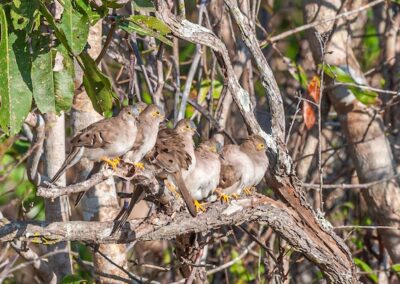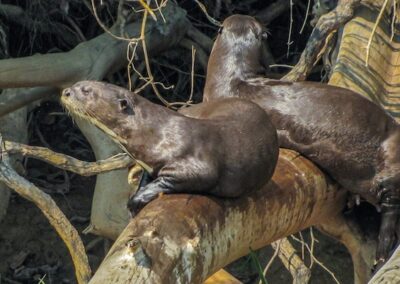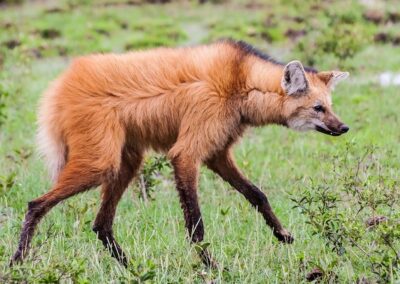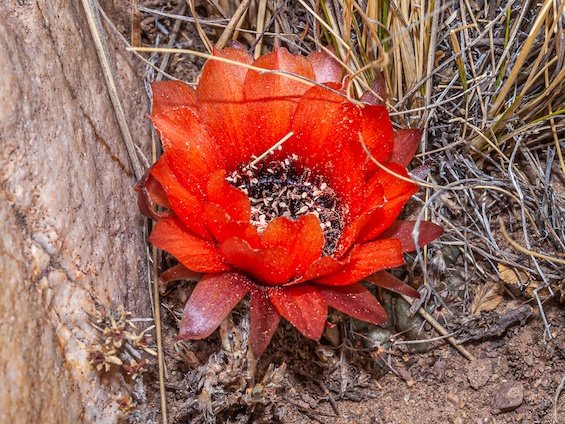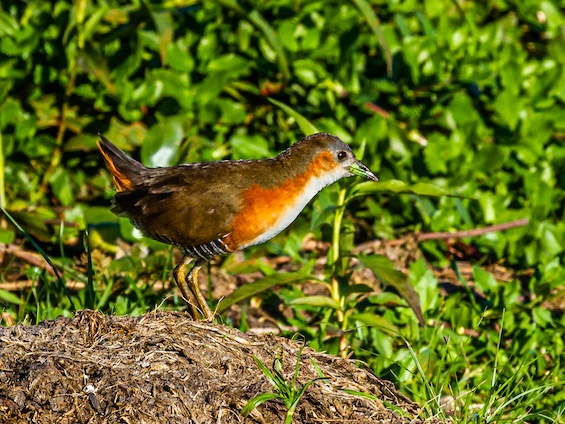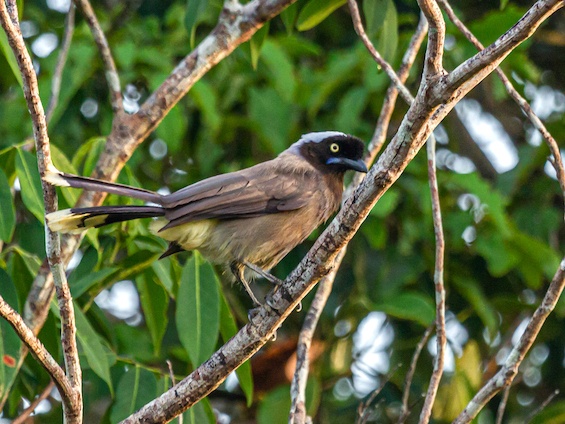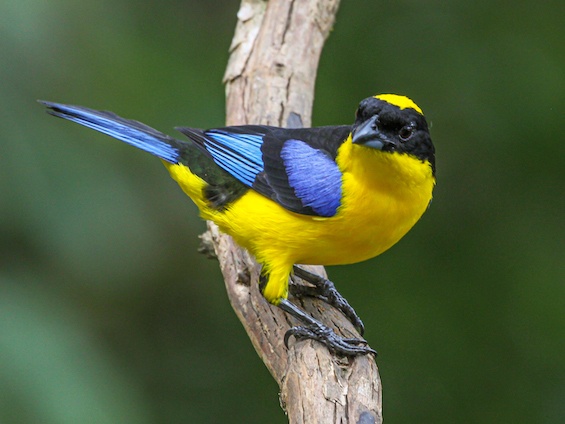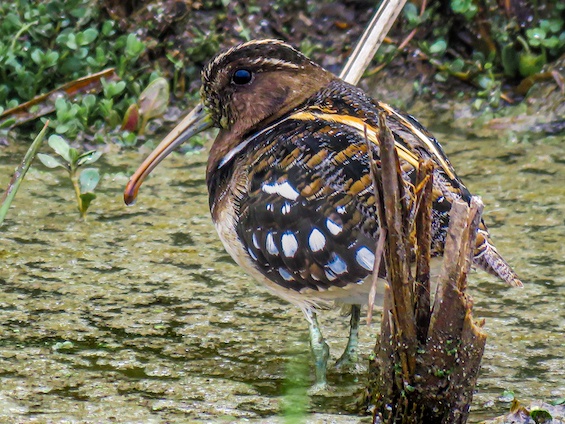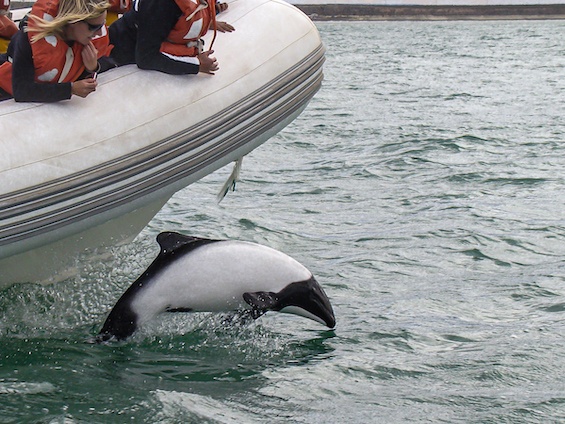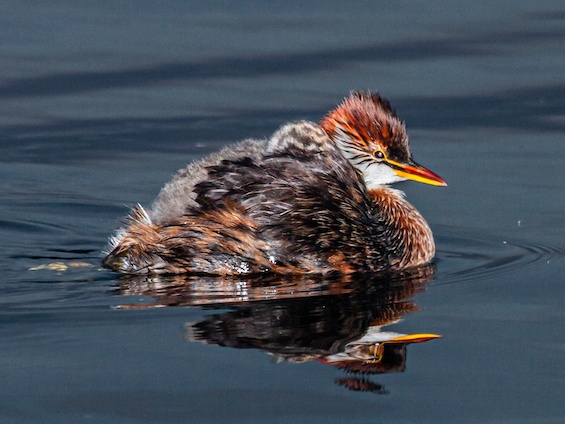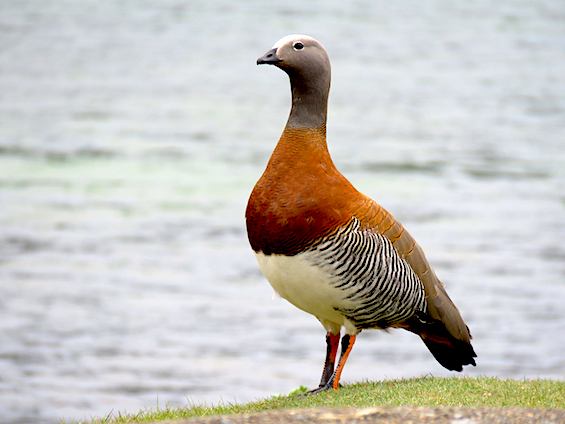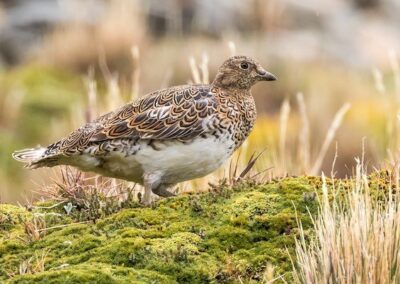Tour Features
Occupying a vast territory within South America, Brazil is an immense country with a huge diversity of habitats and ecosystems. This tour is designed to thoroughly explore two of the richest Neotropical habitats: The Brazilian Pantanal and the dry Cerrado Woodland.
Covering over 142,500 sq. kilometers (55,000 sq. mi.), the Pantanal is about the size of the state of Georgia in the USA. Located in the middle of the continent on the border with Bolivia, the lowland plains are characterized by pronounced wet and dry seasons. Habitats range from semi-deciduous and evergreen forests to palm woodlands and true Pantanal (seasonally flooded grasslands with scattered clumps of Cerrado scrub on elevated patches of land). An enormous number of lakes and rivers dot and cross the region, constantly cleansing and renewing the wetlands.
The Pantanal is considered the easiest place to see and photograph a great variety of tropical animals in South America. Wide-open areas facilitate the spotting of animals such as the rare Marsh Deer, Giant Anteater, Capybara, Black & Gold Howler Monkey, Yellow Anaconda, Ocelot, Margay and Jaguar. While this impressive cat occurs over a wide range, the Pantanal is perhaps the only place on earth where one has reasonable chances to encounter Jaguars in the wild.
While mammals are impressive, it is the amazing abundance of birds that gives Pantanal its fame. It is a destination for three major South American migratory routes. The shrinking of vast flooded areas in the beginning of the dry season, concentrates fish for waders such as Jabiru, Maguari and Wood Storks, Great and Snowy Egret, numerous herons, five species of ibis and Roseate Spoonbills. Four species of kingfishers, Snail Kite, Black-collared and Roadside Hawks and several other raptor species, many parrots, parakeets and macaws and an array of other interesting birds make this a favorite destination for bird watchers the world over. The ease with which birds can be seen is equally a bonus for the experienced birder and first time nature tour participant.
The Cerrado, or Campo Cerrado, corresponds to the arboreal savannah of other tropical continents. It spans over more than 2 million square kilometers, covering 23.5% of Brazil’s land area. This ecosystem dominates west-central Brazil, extending all the way south into Paraguay.
Sparsely scattered low trees and bushes with twisted branches, thick grooved bark, and leathery leaves shape this habitat. Reddish-colored termite nests are prominent on the trunks and they give shelter to nesting Campo Flickers and Peach-fronted Parakeet, who tunnel into their depths. The bird specialties here include Stripe-tailed Yellow-Finch, White-rumped and Shrike-like Tanagers, Coal-crested Finch, Red-legged Seriema, Red-winged Tinamou, Yellow-faced Parrot, the secretive Collared Crescentchest and the endemic Rufous-winged Antshrike.
The forested riverine Cerradão is home to Helmeted Manakins, which are normally seen during our tours. Narrow, true riverine forests cover the banks of streams and rivers in this area, and these are home to such spectacular birds like Dot-eared Coquette, Cinnamon-throated Hermit, Blue-winged, Red-shouldered and Red-and-Green Macaws to name but a few.
Das Emas National Park, with a total area of 130,000 hectares (321,000 acres), holds the largest patch of Cerrado habitat left in Brazil. Despite being completely surrounded by crop plantations, this park is unique for particular avifauna, including birds like Red-legged Seriema, Cock-tailed Tyrant, and several species of Macaws and Parrots. Mammals are stunning, with Maned Wolf, Giant Anteater, Giant Armadillo, Pampas Deer and Tapir standing out of many others.
The cliffs and strange rock formations of Chapadas offer yet another habitat, quite distinctive and different to all the others covered during this tour. Chapada National Park sits on the division of the Amazon and Parana River basins, over the western edge of the Cerrado grasslands of the Central Planalto Plateau.
Tour Highlights
Jaguar, Maned Wolf, Ocelot, Hyacinth Macaw, Brazilian Tapir, Crab-eating Racoon, Red-and-green Macaw, Sungrebe, Sunbittern, Blue-throated and Red-throated Piping-Guans, Red and Gray Brocket deers, Pampas Deer, Bare-faced Curassow, Helmeted Manakin, Blue-and-yellow Macaw, Toco Toucan, Chestnut-eared Aracari, White-lipped Pecari, White Woodpecker, Orange-backed Troupial, Marsh Deer, Black-and-gold Howler-Monkey, Black-tailed Marmoset.
INFORMATION
Tour Interest:
Tour Type:
Tour Dates:
Tour Duration:
Starts/Ends:
Best time to go:
Prices:
What’s Included?
What’s Not Included?
Itinerary ( 16 days )
Day
1
Arrival
Afternoon meeting with your Trogon Tours’ leader at Campo Grande airport. Drive to Pousada Aguapé. O/N Pousada Aguapé.
Day
2 & 3
Pousada Aguapé.
Two full days exploring Pousada Aguapé. O/N Pousada Aguapé.
Day
4
Cuiabá.
Drive to Campo Grande airport for taking a flight to Cuiabá. Drive to northern Transpantaneira. O/N Pouso Alegre or Río Claro.
Day
5
Transpantaneira
Full day exploring the northernmost section of the Transpantaneira, watching flora and fauna. O/N Pouso Alegre or Río Claro.
Day
6
Porto Jofre.
Drive to Porto Jofre, birding and watching wildlife en-route. O/N Porto Jofre.
Day
7 & 8
Porto Jofre & Cuiabá River.
Two full days watching flora and fauna and exploring Porto Jofre and Cuiabá River, specially looking for Jaguar. O/N Porto Jofre.
Day
9
Cuiabá.
Drive to Cuiabá birding and watching wildlife en-route. O/N Cuiabá.
Day
10
Rondonopolis.
Drive to Rondonopolis. O/N Rondonopolis.
Day
11 to 13
Chapadão do Céu.
We will drive from Rondonopolis to Chapadão do Céu on day 11, and spend two and a half day exploring Das Emas National Park. O/N Chapadão do Céu .
Day
14
Chapada dos Guimarães.
Drive to Chapada dos Guimarães. O/N Chapada dos Guimarães .
Day
15
Chapada dos Guimarães
Full day exploring Chapada dos Guimarães. O/N Chapada dos Guimarães
Day
16
Tour Conclusion.
Last morning watching wildlife at Chapada. Afternoon transfer to Cuiabá airport. Tour Conclusion.

